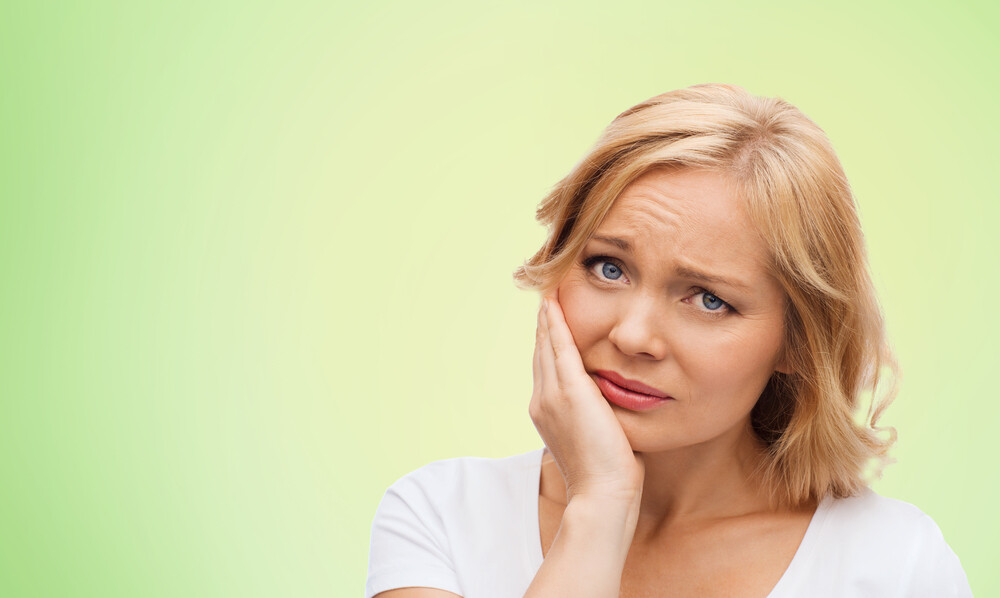The menopause is a time of great change: Your whole body changes and suddenly new problems arise. For example, many women have to deal with dental problems during the menopause.
It has been known for some time that there is a connection between hormones and dental health. For example, women in pregnancy often suffer from bleeding gums, the first visible sign of gum inflammation, the so-called pregnancy gingivitis. This phenomenon also frequently occurs during puberty.
No wonder: the gums are supplied with more blood and are often swollen as a result – an ideal breeding ground for bacteria!
Common dental problems during the menopause
The situation is similar during the menopause: the gums become softer and more sensitive and tend to bleed and swell. Changes in bacterial colonisation and a reduced amount of saliva further increase the risk of dental problems during the menopause. This is because saliva also performs important cleaning and mineralising functions in the mouth and protects our oral health.
And that’s not all: the decreasing bone density (osteoporosis) after menopause does not stop at the jaw and also ensures that the teeth can lose their firm hold in the jawbone. Both gingivitis and osteoporosis are among the risk factors for periodontitis. It damages the periodontal apparatus. The result: the teeth become unstable. Even tooth loss is possible if no treatment is given.
Counteracting dental problems during the menopause
Fortunately, however, we can help to prevent dental problems during menopause by means of targeted oral hygiene. This begins with good prophylaxis at the dentist. Regular check-ups and professional cleaning should be a matter of course (not only during the menopause!).
A clear sign that there is an acute need for action is frequent gum bleeding. Anyone who brushes less in order to prevent further damage to the gums will only make things worse. Because if food remains and bacteria are not removed, plaque forms, which can worsen gingivitis and spread to periodontitis.
Instead, Dr. Ralf Seltmann, a dentist at the Swedish oral hygiene specialist TePe, advises switching to softer toothbrushes and using extra-soft interdental brushes for the critical interdental spaces.
Additionally, a gel with fluorides and antibacterial chlorhexidine can be used, which is applied with the interdental brush. It ensures efficient cleaning and prophylaxis especially in the interdental spaces. However, an anti-inflammatory mouthwash with sage tea serves the same purpose.
Tips for dental care and oral hygiene for women over 40
The following tips for dental hygiene should be integrated into the care routine of women over 40:
- 2 x daily tooth brushing with a (possibly medium soft) toothbrush, an electric toothbrush can also be useful. If used correctly, it does not require much pressure and thus protects the gums – while at the same time cleaning efficiently.
- Daily cleaning of the interdental spaces with interdental brushes (available in different sizes so that all spaces can be cleaned optimally, e.g. TePe Interdental Brushes, which are also available in a particularly soft version).
- Rinse your mouth regularly with sage tea or a saline solution (1 teaspoon of salt to a glass of water) to prevent inflammation, swelling and redness.
- Regular dental cleaning and prophylaxis at the dentist, experts recommend an appointment every six months.
Also important for women over 40:
- Drink a lot, at least 2 litres daily
- Healthy, varied diet with foods that require intensive chewing (e.g. wholemeal bread, raw vegetables, apples), which stimulates salivary flow
- Abstain from nicotine and alcohol
- Avoid strong spices, vinegar and mustard to protect the gums

